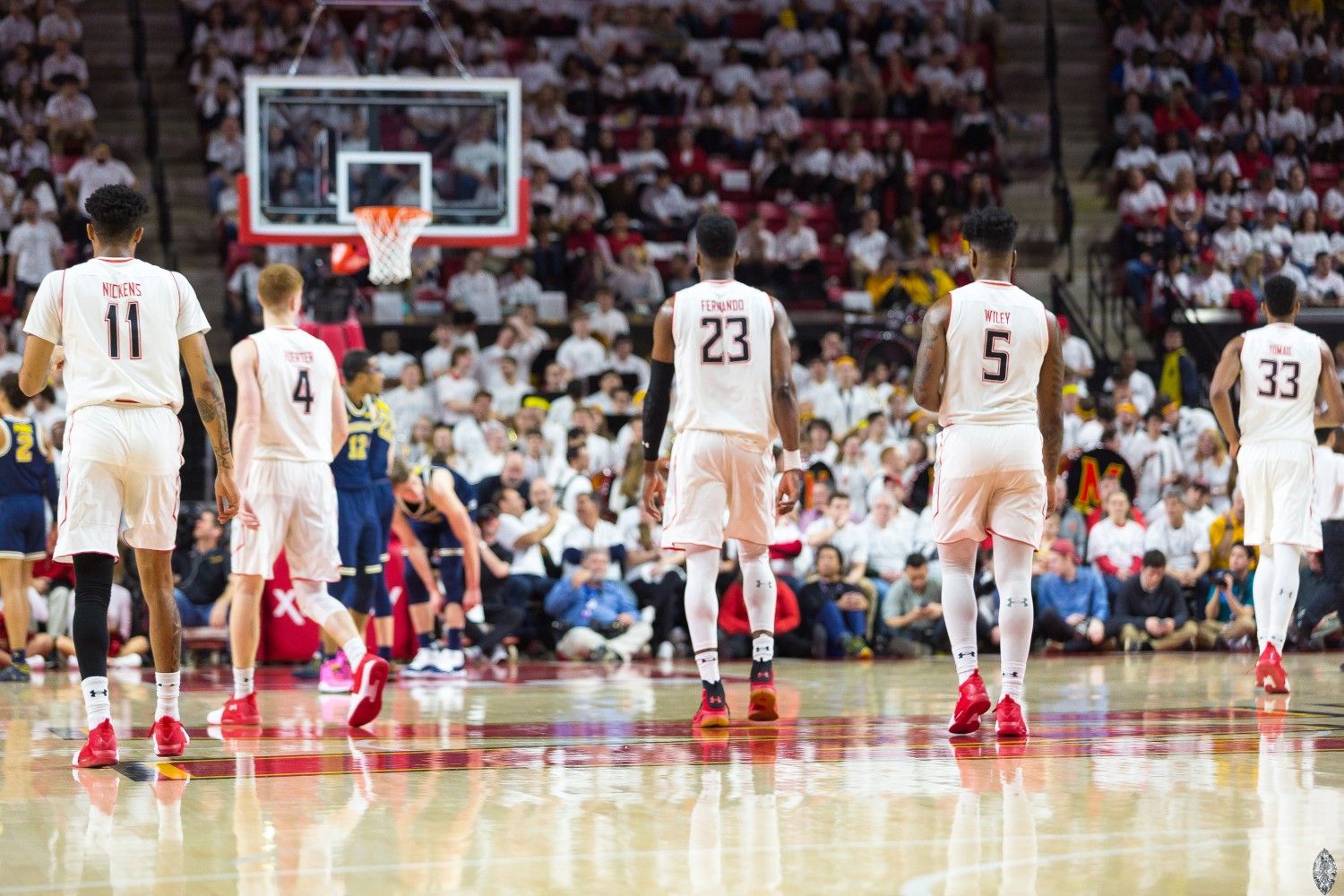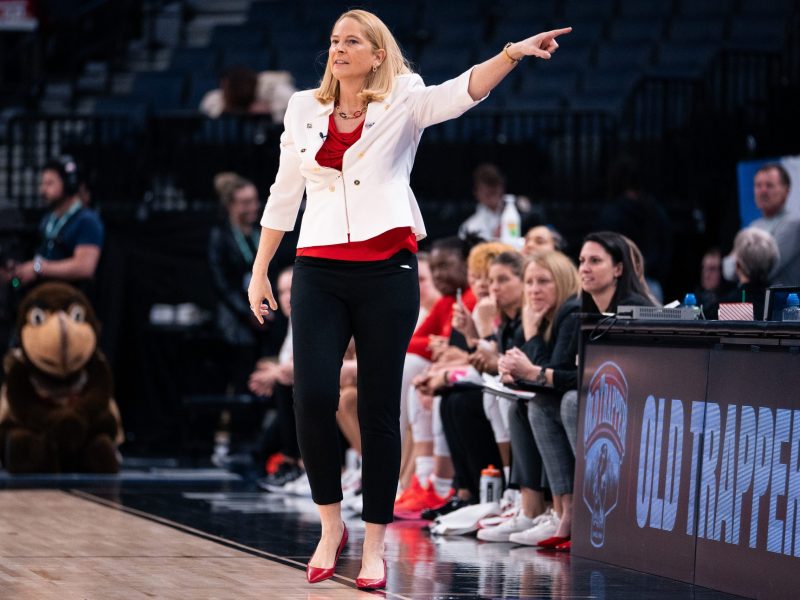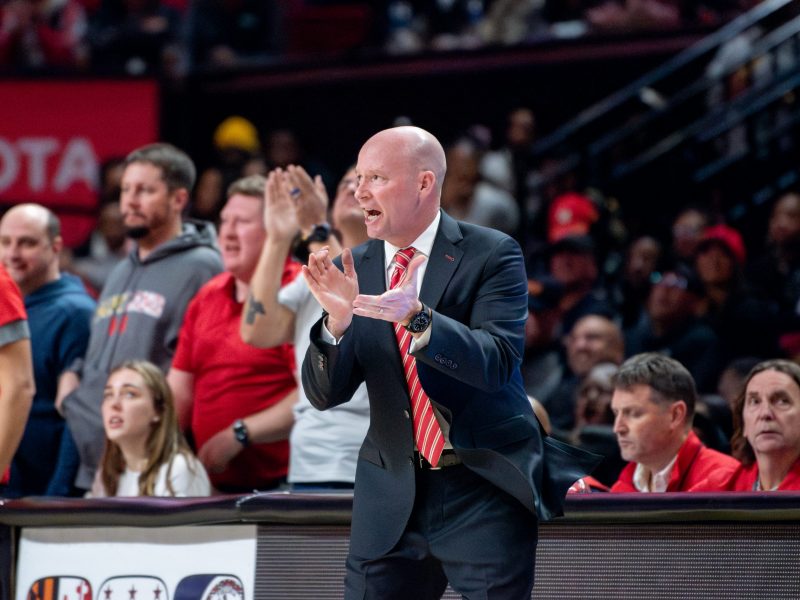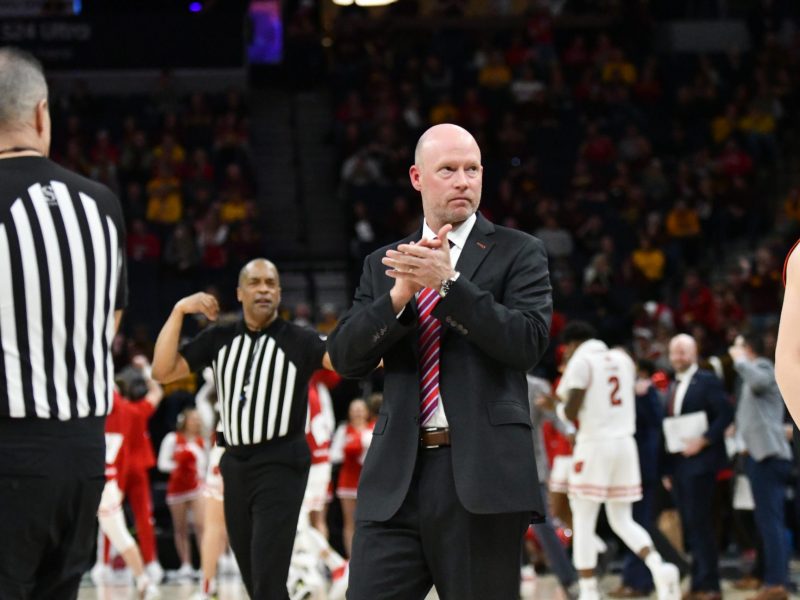Maryland is fresh off their signature win of the season, a 14-point home victory over No. 12 Purdue. Maryland can continue to bolster its NCAA tournament resume in a meeting with the No. 6 Michigan Wolverines, who are coming off a strange road upset at unranked Penn State on Tuesday.
To get ready for what will likely be one of the toughest games on Maryland’s schedule, we spoke to Jacob Shames of The Michigan Daily. Our conversation has been edited lightly for clarity.
The Wolverines started out hot in non-conference and early in conference play, but have faltered over the past few weeks. What would you attribute to their recent Big Ten struggles?
For starters, the Big Ten is just a really difficult league. It wears you down, and Michigan’s not immune — in fact I’d say it’s especially vulnerable because the rotation is so thin. You have the starting five — Zavier Simpson, Jordan Poole, Charles Matthews, Ignas Brazdeikis and Jon Teske — and then Isaiah Livers off the bench and sometimes Eli Brooks, and that’s it as far as consistent, season-long contributors. Michigan’s actually second-to-last in the entire nation in bench minutes, per KenPom. You can win with a really tight rotation in March, but you’re going to lose games in January and February with fatigue setting in, foul trouble, etc. Their loss at Iowa was a great example of this — the Hawkeyes got Teske and Livers in foul trouble early and the Wolverines don’t really have a consistent backup in the post, and Iowa just dominated down low.
Honestly, I think the bigger issue long term is that Michigan hasn’t been able to score in Big Ten play. In the game against Iowa, it had plenty of chances to get back in it, but hit just eight of 33 3-pointers. Their offense has been pretty solidly middle of the pack since January. Brazdeikis is one of the most talented pure scorers in the country, but he’s only a freshman, and teams are scouting him a lot better now. Same with Poole as a sophomore. I think the biggest concerns before the season about the Wolverines were, who’s going to create his own shot and who’s going to hit shots? And we’re starting to see that now.
What has been different about this year’s team compared to last year?
Last year’s Wolverines and this year’s Wolverines are structured quite similarly: both are defense-oriented, which is a contrast from what John Beilein’s teams have traditionally been, with offense that’s usually just good enough to get by. The difference is, I think last year at this time, Michigan was still buying into that identity, if you will. They were still somewhat on the bubble at this point last year, they had just fallen flat on their faces at Northwestern. And then they won 14 straight games before losing the national title game. This year’s team pretty much picked up where they left off. Michigan’s been very consistent all year — starting five has started every game together, rotation has stayed the same, defense has been excellent all year — whereas last year there was more of a transition — Simpson didn’t even start regularly until January or so — and then you started to see them gel. That team wasn’t the most talented, but really knew their roles and just played great defense. It’s the same story this year but it starts at a different place.
One big difference is that last year Michigan revolved around Moritz Wagner, who averaged 15 points per game and shot 40 percent from deep at 6-foot-11 and was one of the most unique offensive threats in the country. The Wolverines replaced him at center with Teske, who really isn’t anything like Wagner at all — Wagner was a poor defender, and Teske’s phenomenal on that end, while on the flip side Teske isn’t the ball-handler or shooter Wagner was — and have probably gotten better when Teske’s on the court, not just on defense, but on offense too, because of how good the pick-and-roll connection between Teske and Simpson is. Those are Michigan’s two most important players, hands-down.
What happened at Penn State?
I’m still struggling to figure out, honestly. Charles Matthews said they got “punked,” and I have trouble disagreeing with him. Penn State was probably punching above their weight just a bit, especially in the first half when they had nearly 1.3 points per possession, but they pretty much outplayed Michigan all night long. That was a well-deserved win. They had Lamar Stevens as a small-ball center, which was a bad matchup for Teske down low, and he dropped 26. Myles Dread, the only real shooting threat Penn State has, hit five threes and they had 12 offensive rebounds. On defense, the Nittany Lions switched every screen, which really caught the Wolverines off-guard, and they also used a lot of full-court pressure, which was really big. Michigan had some absolutely horrible turnovers against it — as Simpson goes, the team goes, and he had six turnovers and missed four threes in the first half. That pressure got them out of rhythm. Michigan climbed back in the second half but it really was just too late, and Stevens pretty much took over.
Oh, and John Beilein got ejected for the first time in 40 years. That might have had something to do with it.
Coming into Saturday’s game, what is the current mood of the team been from what you’ve seen? The Penn State loss definitely hasn’t sat well with the team.
No, it really hasn’t. Beilein was actually quite optimistic on Tuesday night, he talked about how Penn State is still a top-100 team and suffered a ton of close losses, and they were bound to get a big win sometime. It just so happened to be against Michigan. Matthews was the only player I talked to after the game, however, and he was … well, let’s just say ticked off. This is almost certainly going to be his last season of college basketball, and he’s had two of his best games of the season lately — 17 second half points against Wisconsin and 24 points against Penn State — and nearly won both of those games by himself. He just stood there, looking down at the stat sheet for six or seven minutes, just laying into the Wolverines’ effort, focus, level of urgency. Seemed like just very angry, honest introspection. At one point, he said, “Time is running short. It ain’t no more, ‘we’ll fix it later.’ Time is now.” And if Matthews is representative of anything — which, as a captain and elder statesman of the team, he absolutely is — that quote probably sums it up. Losing to the last-place team in the conference was probably a big-time wake-up call for Michigan, and I’d expect to see a greater sense of urgency going forward. All of this is intangible, of course, but something’s going to have to change going forward, and the Wolverines unquestionably know that now.
Michigan will win if…
Jordan Poole, who’s shooting around 30 percent from deep in Big Ten play, and Ignas Brazdeikis get going — although you could say this about just about anybody. Brazdeikis in particular might be key — he excelled in the pick-and-pop game against Rutgers, exploiting that matchup as a smaller power forward, where he’s played all year, and Maryland, like Rutgers, plays two big men most of the time. That could bode well for the Wolverines. If Michigan knocks down the shots it should, it should win fairly comfortably. But that’s far from a sure thing.
Maryland will win if…
The most likely scenario here is that Teske gets in foul trouble early, Bruno Fernando and Jalen Smith take advantage against the Wolverines’ backup bigs, and Anthony Cowan makes enough tough shots against Zavier Simpson. With the way Michigan’s offense has played lately, it would not shock me at all if that resulted in a Maryland win.



